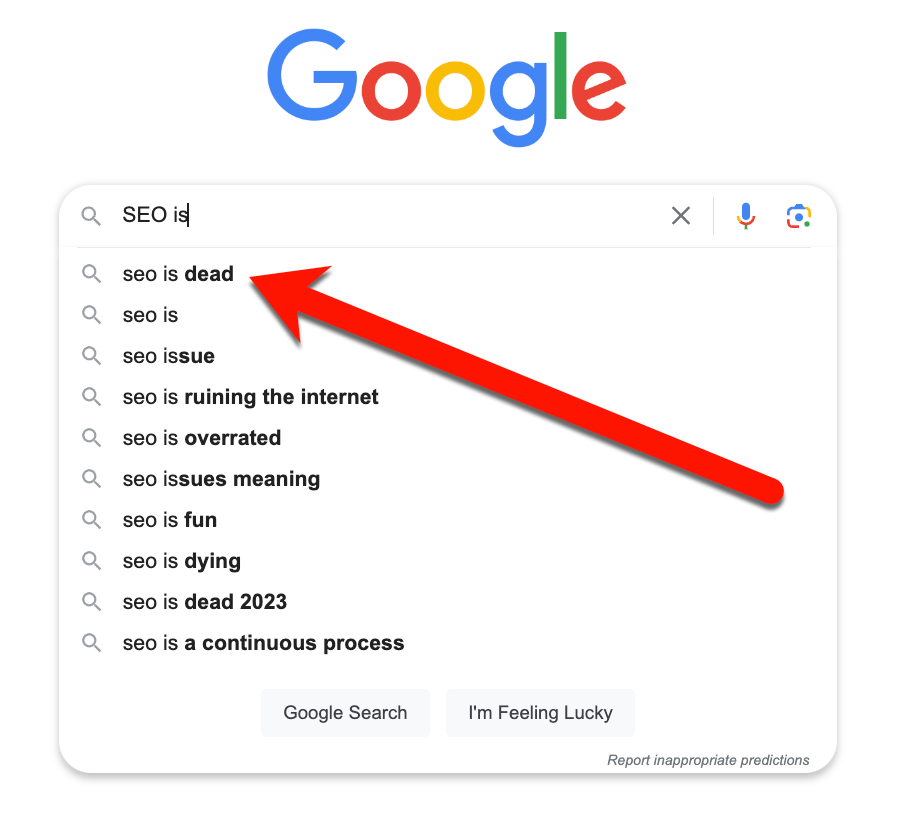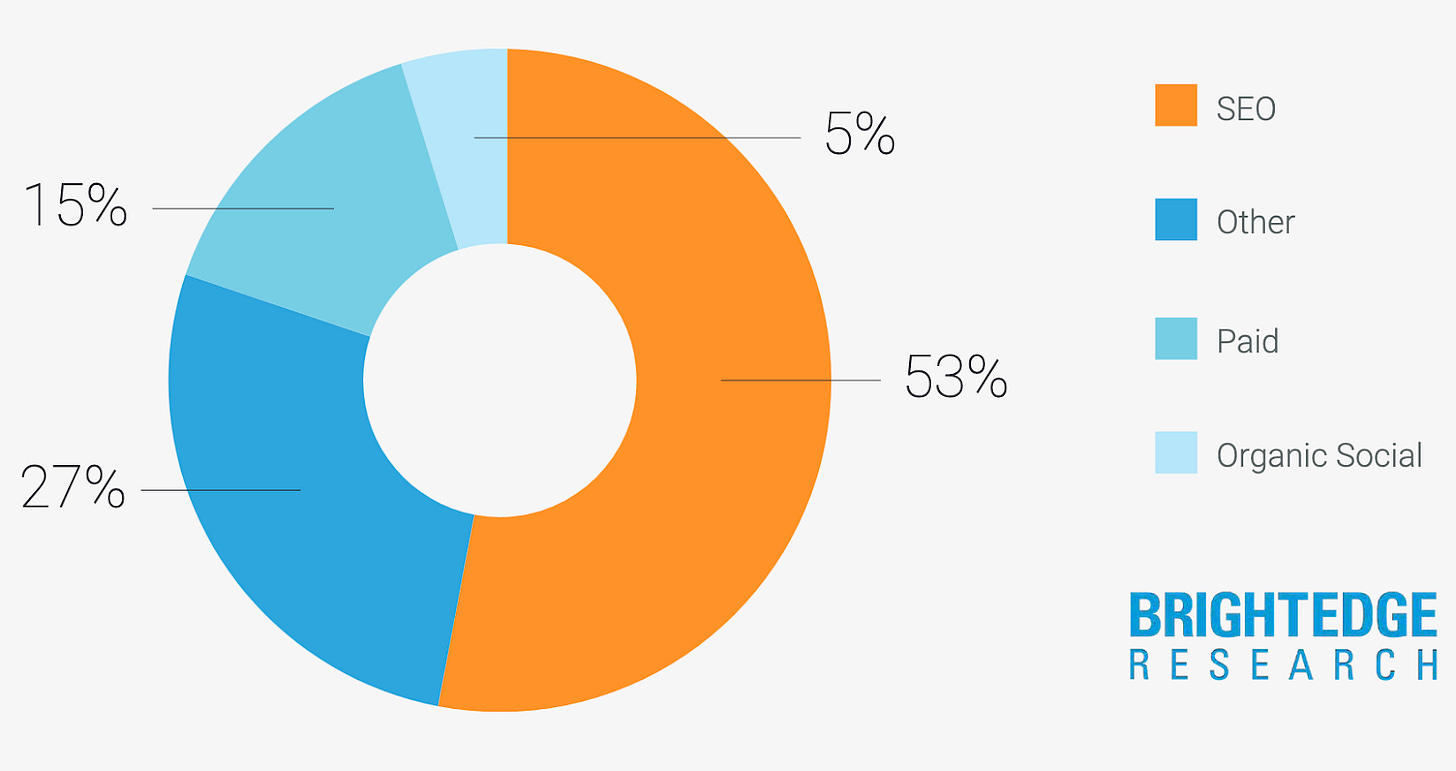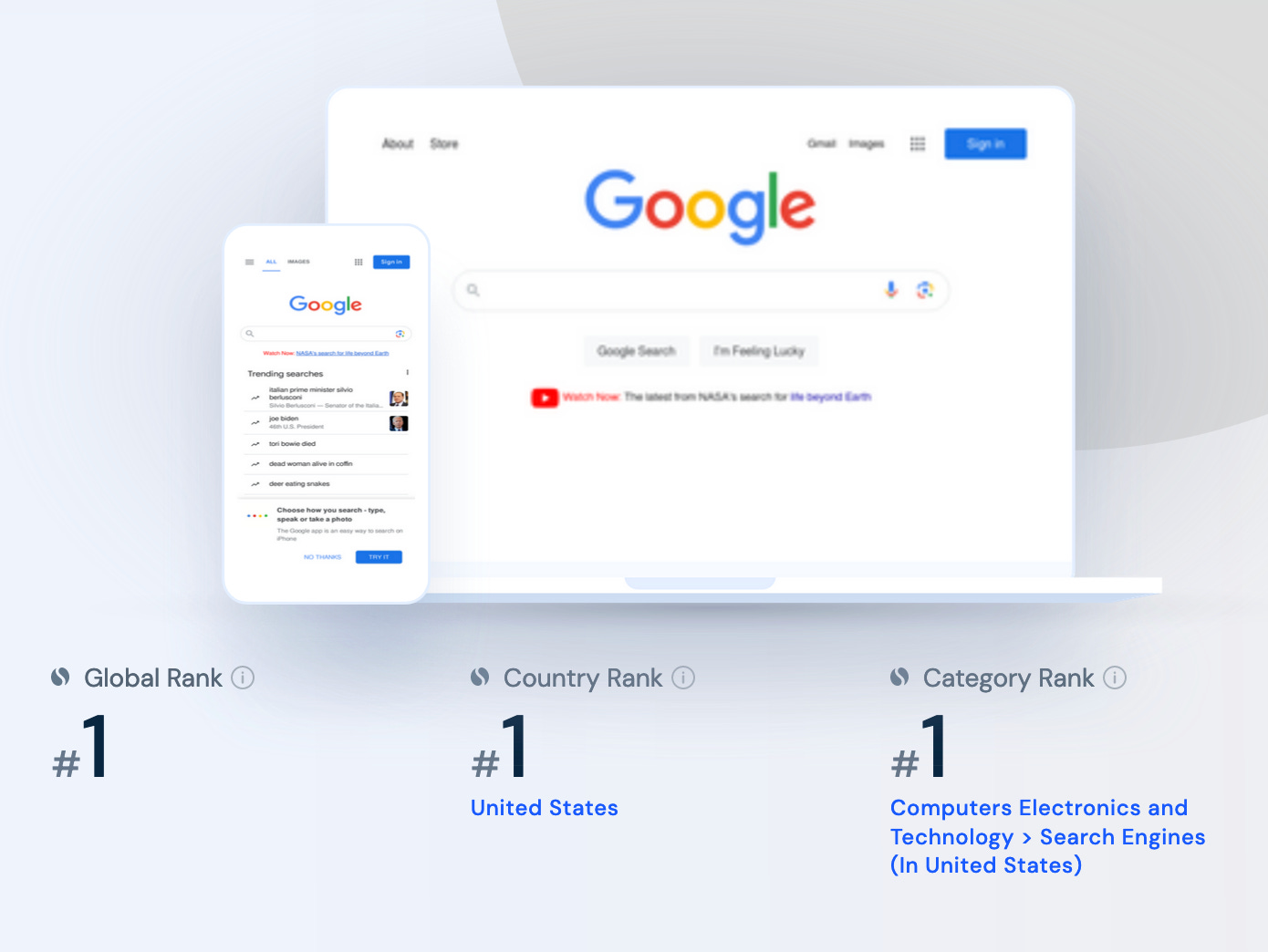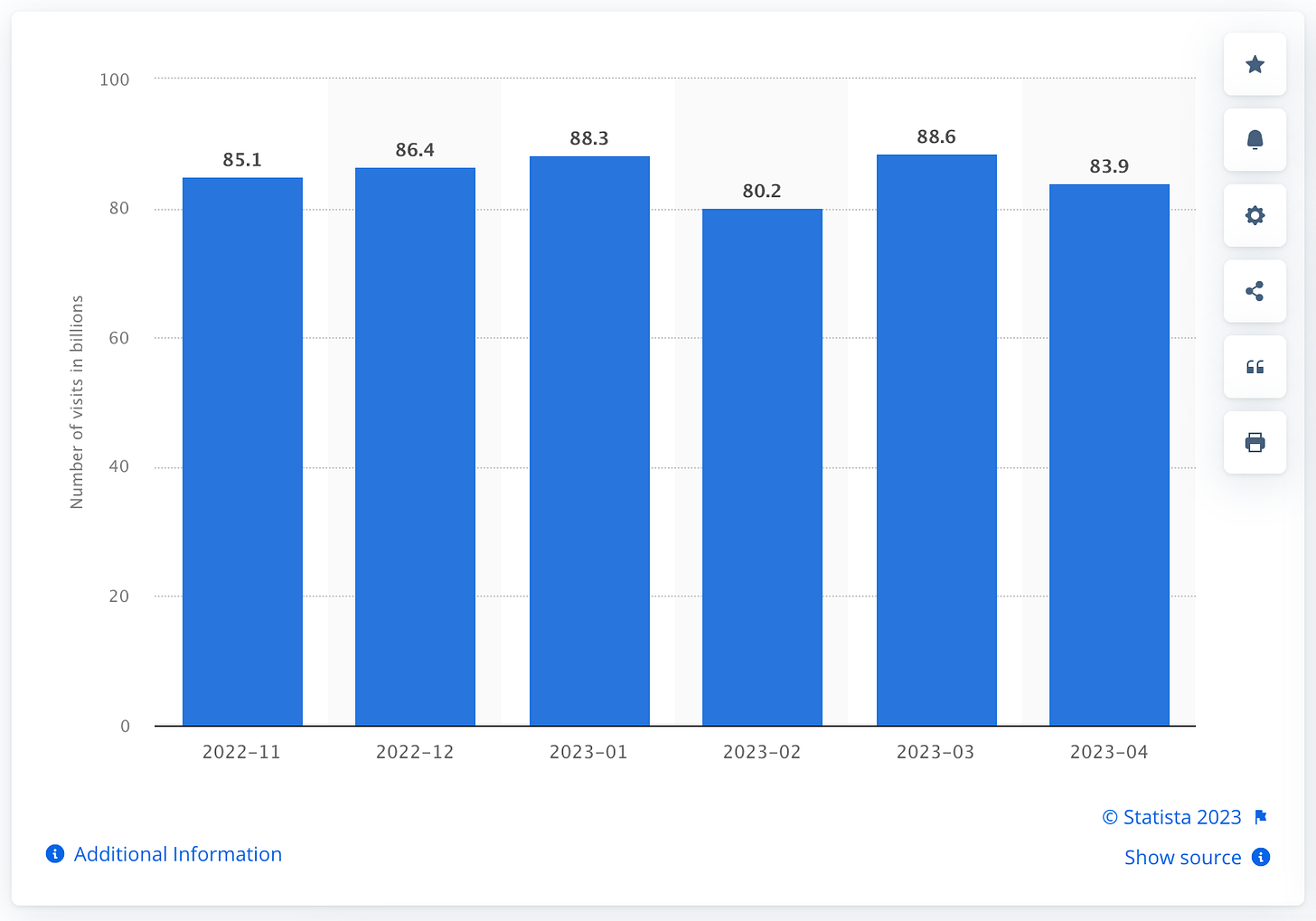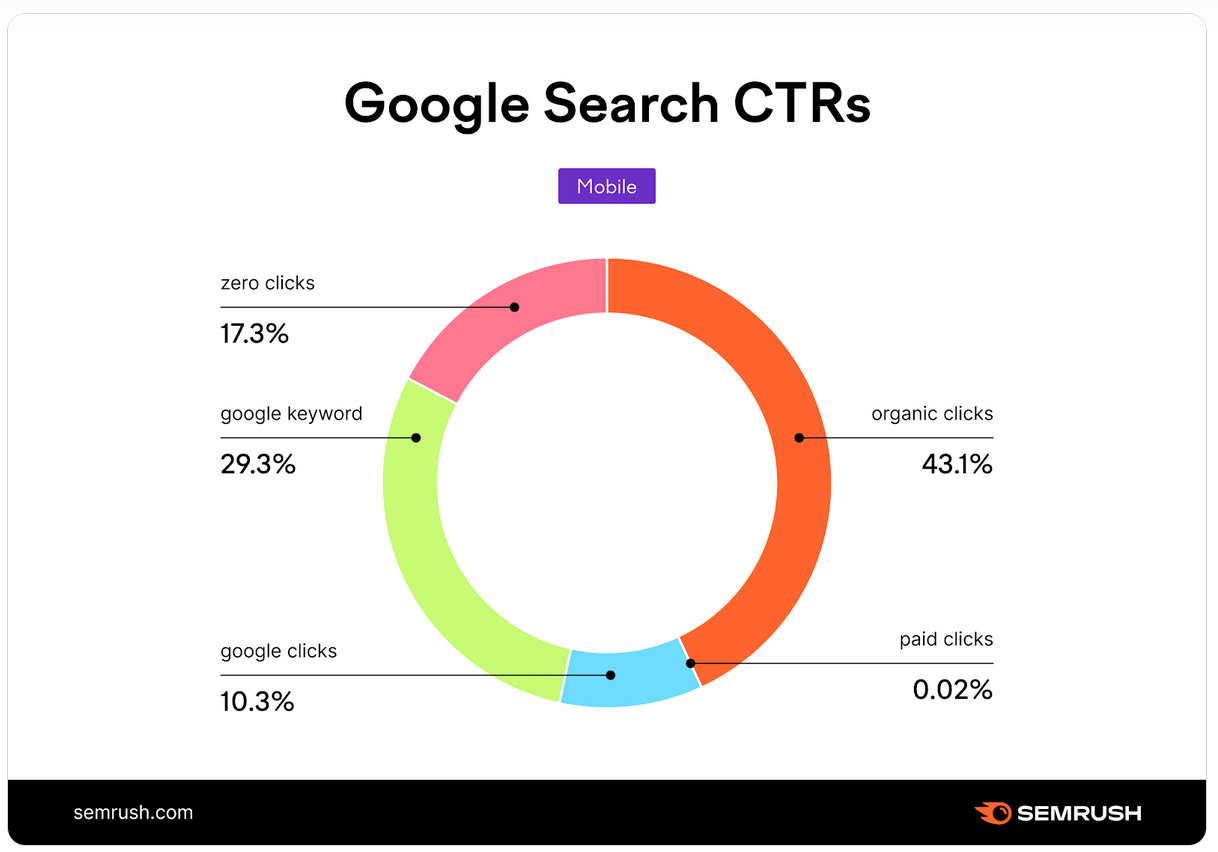Ann Smarty's Digest #5: "SEO is Dead" Is Now Google's Top Suggestion
It is not Google. It is us.
Look, I’ve been doing SEO for about two decades now and it was declared dead long before I started. Let’s see…
The biggest scare among web publishers is that people won’t ever click any more because with generative AI, they will just get replies right away.
Listen, Google’s whole monetization method is built on clicks. If people stop clicking organic results, they will stop clicking ads.
Google receives and sends a crazy amount of traffic!
Now, let’s take a look at some numbers now:
Is Google SEO going to lose effectiveness any time soon? (Hint: NO)
GOOGLE has been consistently the single biggest driver of clicks to websites for more than a decade.
According to Brightedge, despite several major shifts in consumer behavior, the rise of mobile search, and the dramatic changes to the Search Engine Results Page layouts, including Local 3-Pack, Knowledge Graphs, Videos, and Featured Snippets, on average organic traffic drives half of traffic to websites across the world (according to another study by Sparktoro, it is even more).
Google search is where most buying journeys start.
According to SEMrush, Google is #1 highest-traffic site in the world. But they won’t survive if their users stop clicking:
Their whole revenue model is built on clicks, and for that, they need people to continue finding and clicking relevant and helpful results.
It is in their best interest to continue surfacing best results for their users. It’s generating clicks or dying for Google.
According to Statista, Google generated approximately 83.9 billion visits in April of 2023: It is not a marketing channel to be ignored.
Will Google continue to be a massive and effective marketing channel, now that search engines generate quick answers to users’ queries often removing the need to click any results?
Well, quick answers (i.e. featured snippets) are nothing new for search. AI generative answers will simply be another form of quick answers.
Undeniably, Google’s introduction of SERPs features has resulted in fewer clicks to publishers’ sites but searchers still prefer organic results.
According to multiple studies (including the most recent one from Semrush), about half of searchers prefer to interact with organic results, that’s because the majority of searchers are willing to dig deeper, beyond quick answers (on both mobile and desktop devices):
Only about 17% of people don’t click any links when searching Google, and that includes people who continued searching after reviewing the first set of SERPs they got after typing the search query.
Those users who are satisfied by quick answers (whether these are featured snippets or generative AI answers) may not be your target audience in the first place because they were looking (and hence were satisfied by) quick answers.
While the web is changing, Organic Search remains the dominant source of trackable web traffic and the largest digital channel.
Plus, there have been lots of changes throughout the history of Google by now, and SEO has not gone anywhere.
Tools of the week:
Ironically, I have two AI search engines for you to play this week.
Claude.ai overall works similarly to ChatGPT but writes better content. Plus, you can upload PDFs and it can explain them to you. I uploaded one of Google’s patents and it was very good at making it much easier to understand.
Poe.com is a tool that gives you access to lots of AI tools. Search the web, draw pictures in Van Gogh style, and more!
Must-reads (PR edition):
How to Secure More Press for Your Company: “Start by putting yourself in reporters' shoes. The goal is to publish an interesting story as quickly and efficiently as possible. The more you can provide them with a compelling quote or perspective that is nearly "publish-ready," the more likely you'll get quoted or featured.“
You Should Be Using Reddit for Link Building and Content Marketing: “A secret you may not be privy to is that journalists and writers often scour Reddit for fresh and original content within their areas of expertise. “
What is the best generative AI tool for writing PR content? - If you are about to publish a press release for your company, getting help from generative AI may not be a bad idea!
Honorable mention:
Google’s update on web publisher controls: Last but not least, Google now gives publishers controls over whether they want their content to be used by Google’s Bard (Google’s generative AI chatbot) for training and information. While I’d hate Google Bard to reword my content and give it as a quick answer to a search query, my question is this: If I block Google Bard, will that prevent it from linking to my domain as a source for any responses?
What are your thoughts?


